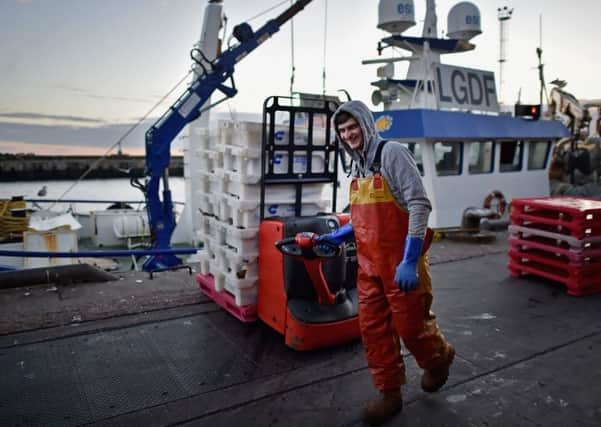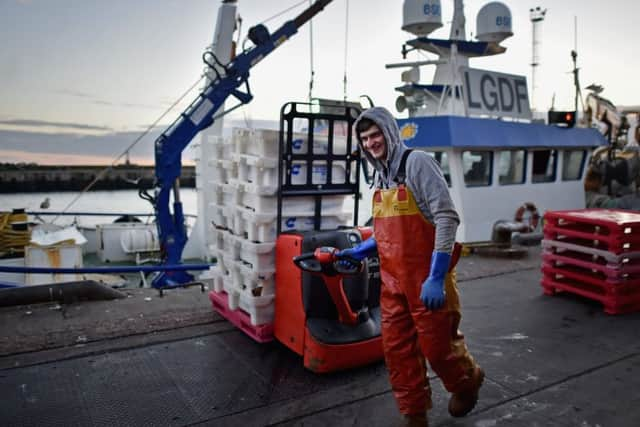Scottish food industry to be '˜devastated' by hard Brexit


Industry leaders say that costly tariffs imposed on their products would hammer the sector under a “no deal” Brexit scenario which would see exports between the EU and UK subject to World Trade Organisation (WTO) rules.
It comes amid growing concerns about the prospect of a free trade deal being struck after the UK leaves the EU, with influential Belgian MEP Guy Verhofstadt appearing to rule out a “bespoke” deal for the UK at the weekend, which the UK is seeking to negotiate.
Advertisement
Hide AdAdvertisement
Hide AdScotland’s food and drink industry is worth about £14.4 billion to the economy and now exceeds the oil and gas industry in the country’s growth. Whisky would escape tariffs, but food would be worst hit under a WTO scenario, according to research conducted by the Economic and Social Research Institute. More than 5,000 products classified by the WTO attract diverse tariffs. This includes almost 50 per cent for meat, and 34 per cent for processed meat and fish, as well as 9 per cent for fish and crustaceans.


The stark impact will be heard by MSPs at Holyrood this week when industry leaders give evidence on Brexit.
“This an alarming insight to what the inshore industry might face moving forward,” Alistair Sinclair of the Scottish Creel Fishermen’s Federation warns in a submission to the rural affairs committee.
“The impact on our inshore fleet [creelers and diver] could be catastrophic with rural communities suffering most. These are indeed very sobering results which would have devastating results on the food sector across Scotland.”
The research predicts that sales of fish would fall by about 40 per cent while processed meat and fish products would plunge by 90 per cent. About 70 per cent of Scottish exports go to Europe


James Withers, chief executive at Scotland Food & Drink said: “The prospect of the UK walking away from the EU without a trade deal is of real concern for food and drink businesses across Scotland. No deal is a bad deal for the Scottish food and drink sector.
“There is a real sense that the clock is now ticking. For our agricultural sectors, their growing season requires long-term planning and the continued uncertainty around labour needs resolved quickly.”